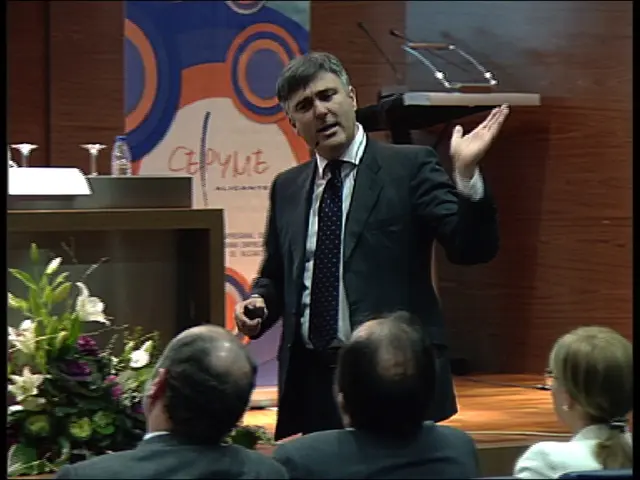Work Retirement before 45 Years of Service: Be Mindful of Your Spending! - Stepping into Retirement after 45 years of Service: Avoid Frivolous Spending!
Working Pensioners in Germany: A New Tax Landscape
Since 2023, a significant change has been introduced in Germany for individuals receiving deduction-free early retirement while continuing to work. According to the black-red government coalition, such working pensioners must pay income tax on their combined income if it surpasses the basic tax-free allowance, but they are exempt from further pension contributions on their earned income [2][5].
Firstly, it is important to note that working while receiving a pension is allowed without any limitations on working hours. Pensioners do not need to make additional pension contributions for income earned after retirement, but they can choose to contribute voluntarily to boost their future pension entitlements [2].
The total taxable income includes both pension payments and employment income. If the combined amount exceeds the basic tax-free allowance (€12,096/year for singles in 2025, €24,192/year for couples), the individual must pay income tax on the excess [2][5].
Supplementary income up to a small threshold (around €410) generally remains tax-free if it is not subject to wage tax, but beyond that, income tax returns may be required, with taxes assessed per individual rates [5].
It is worth mentioning that there are ongoing pension reforms aiming to support occupational pensions and expand tax incentives. However, these reforms do not seem to directly alter the tax treatment of pension income combined with work income since 2023 [1][3].
One significant advantage of early retirement is the abolishment of the supplementary earnings limit since 2023. This means that early retirees can continue working, pay into the statutory pension insurance, and still receive their pension [6]. For instance, someone who currently earns an average wage would forgo around 80 euros in pension per month by retiring early [7]. This option is available up to two years before the regular retirement age.
However, it is essential to note that those who receive a pension and continue to work at the same level may face significantly more income than usual and a higher tax rate on the income earned [4]. Terminating their contracts would be age discrimination.
For more detailed evaluations of the government coalition's new pension plans, see our comprehensive analysis. Additionally, private care of relatives, raising children, even time spent in military or civilian service can bring additional pension years [8].
The German Pension Insurance (DRV) offers extensive advice on early retirement [9]. Failing to apply for early retirement means giving up potential money for retirement, and it does not mean complete loss, but it does mean paying less into the pension fund for the years that one stops working early [3]. It is unclear whether the tax-free allowance also applies to deduction-free early retirement [2].
In conclusion, working pensioners with deduction-free early retirement pay income tax on the sum of their pension and work income exceeding the tax-free allowance but do not pay pension contributions on their earned income. Administrative reforms are improving pension system efficiencies but do not change these fundamental tax principles [1][2][5].
Read also:
- A Business Model Explained: Its Purpose and Benefits for Your Venture
- Discussion on WardsAuto Podcast: Tariffs, Failed Merger, and Ford's Quality Issues
- High-Priced 2026 Corvette ZR1X Emerges as Budget Option in Supercar Sphere
- Top racer claims Corvette ZR1 might have shaved an additional 10 seconds off its record-setting lap time at Nurburgring






